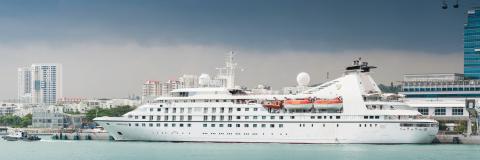From 22 January 2021, if you're travelling to Australia, you must provide evidence of a negative COVID-19 (PCR) test to your airline, taken 72 hours or less prior to departure. See full article for FAQs on the new measures and exemptions.
News

There are limits on the number of incoming international passengers into Australia. Contact your airline or travel agent for the latest updates.

An overseas travel ban is in place for all Australians, with few exceptions. You will not be able to depart Australia to travel overseas, including on international cruises.

There’s currently an outbreak of measles in a number of Pacific countries, including Samoa, American Samoa, Tonga, Fiji, and New Zealand. Some countries now have stricter entry requirements to prevent the spread of the disease.

Red Frogs volunteers are coming to Schoolies in Bali and Fiji to support young school leavers and help you stay travel smart. Red Frogs volunteers act as the eyes and ears in accommodation venues and out on the streets, providing a positive peer presence to school leavers. They are non-judgemental and a lot of fun!
